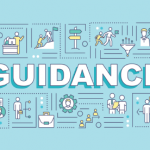In recent years, the ACR Board, committees, and staff have engaged in many discussions about industry funding of ACR activities and the potential for conflicts of interest. Similar discussions have been echoing throughout organized medicine. Clearly, this is an issue with significant and widespread implications for medical societies, affecting areas such as direct support, scientific meetings, Continuing Medical Education activities, and program development.
In her “President’s Perspective” column in the July 2009 issue of The Rheumatologist, Sherine Gabriel, MD, provided an overview of industry support of ACR activity and issues related to conflicts of interest.1 Since then, the debate and relevant literature has expanded considerably (e.g., a recently published systematic review regarding patient attitudes, beliefs, and potential decision making related to physicians’ financial ties).2 In this editorial, we will focus on the issues that most directly affect activities of the ACR Committee on Quality of Care (QOC) and provide context for recent board-approved changes to ACR policies that direct quality efforts.
Ensuring Integrity
The QOC and its subcommittees have unique issues related to industry funding and the potential for influence, due to the committee’s work developing classification and response criteria, practice guidelines, and quality measures. Investment in these initiatives is only worthwhile if the resulting products are read, accepted, and implemented. One factor determining uptake is whether the final publication is considered trustworthy. Trustworthiness results from products that are perceived to be evidence based, systematically developed by diverse experts, transparent, and, of course, free from bias. The source of funding is a significant factor. The ACR Policy on Corporate Relationships has prohibited direct industry support of QOC activities, including ACR-developed guidelines and criteria. ACR policies have not been clear, however, regarding industry support for those guidelines, criteria, or measures that are developed externally and brought to the ACR for approval consideration. The ACR reviews these externally developed documents when requested to, recognizing that quality initiatives led by others can be worthy of ACR support for dissemination and adoption. This arrangement can be mutually beneficial, helping the authors (whether they are other professional societies or ACR members) achieve wide recognition and advancing the ACR’s mission.
The ACR’s approval policies are intended to set clear expectations, maximize the potential for ACR approval of evidence-based and meaningful publications, and ensure the trustworthiness of any product with the ACR name on it. At their May 2010 meeting, the ACR board of directors approved changes to the Policy on Corporate Relationships. The policy now states that the ACR will not review for approval any criteria, guidelines, measures, or other quality-related documents developed with industry funding. This means that industry funding cannot be used to support any component of the process, including budget items unrelated to the investigators’ or committee members’ salary support (e.g., literature reviews, meetings, participant stipends). Consistent with the rest of the policy, “industry” is defined as pharmaceutical or biotech organizations.
Conflicts of Interest in a Complex Age
This change ensures that products approved for endorsement by the ACR are held to the same standards as ACR-developed products and helps set appropriate expectations among developers. Still, this change addresses only the tip of the iceberg of an evolving and extremely challenging issue. We are still learning whether and where industry involvement and “bias-free expertise” can comfortably intersect. It is inherent in the current healthcare system that many clinical experts have ties to industry. Industry funds a large portion of the clinical trials that form the evidence for evidence-based initiatives.


